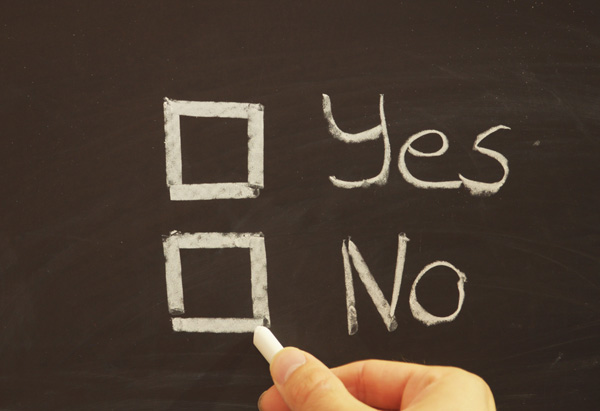
When Your Gut Sends Mixed Signals
So when Big, Serious Company in Berlin offered her a dream job, decisiveness failed her. Should she stay in New York and keep her comfortable apartment and gaggle of close friends? Or abandon it all for a roll of the dice on a new job that could catapult her career forward? She surveyed her friends and family. She made pros-and-cons lists for days. But still, she was nowhere. So she squeezed her eyes closed and listened to her gut, which said, "Do both."
And there's your problem. There are times when you know exactly what to do, whether it's saying yes to a gorgeous new house or no to a late-night ride home from a sketchy cab driver. But then there are times when you just don't, because the signals bombarding your brain are decidedly mixed. Intuition is one of our mind's most powerful functions, but accessing it can be a tricky endeavor.
Many of us think of intuition as "doing without thinking," ignoring our heads and following our hearts. But neurologically speaking, it is actually an impressive cognitive process. A region of the brain called the basal ganglia appears to play a crucial role. This is the region involved in two processes critical to intuition: predicting rewards and acting without conscious thought.
This aptitude for making decisions seemingly without thinking—like deciding to put one foot in front of the other while walking—is the same ability that takes over when your mind is overwhelmed with information. "Intuition could be described as signals that come from lots of different places, below the threshold of consciousness," says Dan Levine, PhD, professor of psychology at the University of Texas at Arlington. In the absence of hard evidence to push you toward a clear yes or no, your mind tries to take everything you know that's relevant to the situation and boil it down to a single sensation. And "everything you know" includes not just what's right in front of you but a lifetime of accumulated wisdom: prior experiences, advice you've been given, the outcomes of past decisions.
Psychologist David Myers, PhD, describes intuition as an example of "knowing more than we know we know." And when it works, this subconscious process can clarify the mind in ways rationality can only dream of. For instance, Myers cites the work of Harvard psychologists who found that watching just three two-second video clips of someone teaching was all that observers needed to predict quite accurately how students would evaluate that teacher at the semester's end. Intuition makes us whizzes at sizing people up.
But that doesn't mean we always know how to use it correctly. At its base, intuition is a partly emotional response, and sometimes we can't deduce what our emotions are saying. "You react emotionally in ways that sometimes need to be overcome [with rational thinking]," says Jonathan Baron, PhD, professor of psychology at the University of Pennsylvania.
Baron cites the example of his recent search for a new home. He was prepared for a grueling slog, so when he found a charming apartment after just one month, he told himself he'd found the perfect place. It wasn't until later that day that he realized the apartment was way too small. When you've already strongly decided that you want the answer to be yes, you run the risk of distorting your intuition by telling yourself what you want to hear.
It's because of this subconscious tug-of-war between our analytical and emotional impulses that our intuition sometimes comes across as murky or cryptic. When this happens, a few simple strategies can clear out the interference so that your intuitive mind comes through loud and clear, and tells you exactly what you need to know.
Next: The three strategies you need to make the right decisions













